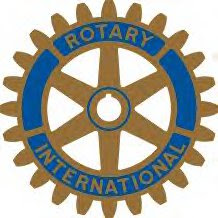 The Permanent Representative of Norway to the United Nations, Ambassador Johan Ludvik Lovald (left) was the guest speaker at the January 2007 International Service Divsion's breakfast meeting. The Ambassador has been serving the Norwegian government at the UN in New York since the 1970's. He earned his Ph.D. from Northwestern University in Evanston Illinois. (Yes, the same Evanston Il. where the headquarters of Rotary International is located.) The Ambassador spoke about the NGO and Private Sector relationship with the UN. He was one of the main negotiators of the 2005 Summit UN Outcome Document that among other items, recommends increase NGO participation.
The Permanent Representative of Norway to the United Nations, Ambassador Johan Ludvik Lovald (left) was the guest speaker at the January 2007 International Service Divsion's breakfast meeting. The Ambassador has been serving the Norwegian government at the UN in New York since the 1970's. He earned his Ph.D. from Northwestern University in Evanston Illinois. (Yes, the same Evanston Il. where the headquarters of Rotary International is located.) The Ambassador spoke about the NGO and Private Sector relationship with the UN. He was one of the main negotiators of the 2005 Summit UN Outcome Document that among other items, recommends increase NGO participation.New York Rotarian Nikolaus Helbich (center) was the moderator and NY Rotarian Patrick Mellea (right) also participated in the discussion.
The Ambassador noted that while it is essential that the UN remain an inter-governmental organization, and its procedures must be respected, the NGO is becoming an increasing important resource for the UN, especially in helping toward the eradication of global poverty.
The ambassador noted that in the 1990's there were a number of the colossal world conferences with NGO's and private sector. And while these conferences have not taken place in the last ten years or so, the NGO still is essential. As such, many UN agencies are refining procedures to incorporate formal consultation, and more importantly, informal methods to be utilized by many of the UN missions. In 2005, the President of the 60 General Assembly, H.E. Mr. Jan Eliasson, asked Ambassador Johan L. Løvald of Norway and Ambassador Rezlan Ishar Jenie of Indonesia to serve as his special advisor on the relationship between Member States and representatives of civil society in the context of General Assembly affairs.
Presently, about nine countries have already reached the .7 of 1 percent of their resective GDP to be committed to global poverty eradication. Norway has already surpassed this .07 of 1% percent. It allocates half of this amount to multilateral organizations such as the UN and other Bretton Woods institutions such as the World Bank. A significant part also goes to Norwegian NGO's that work toward this goal. It was also pointed out that UNICEF has a global task force that is meeting with Rotary which is is a good example of using NGO expertise with the UN agency.









